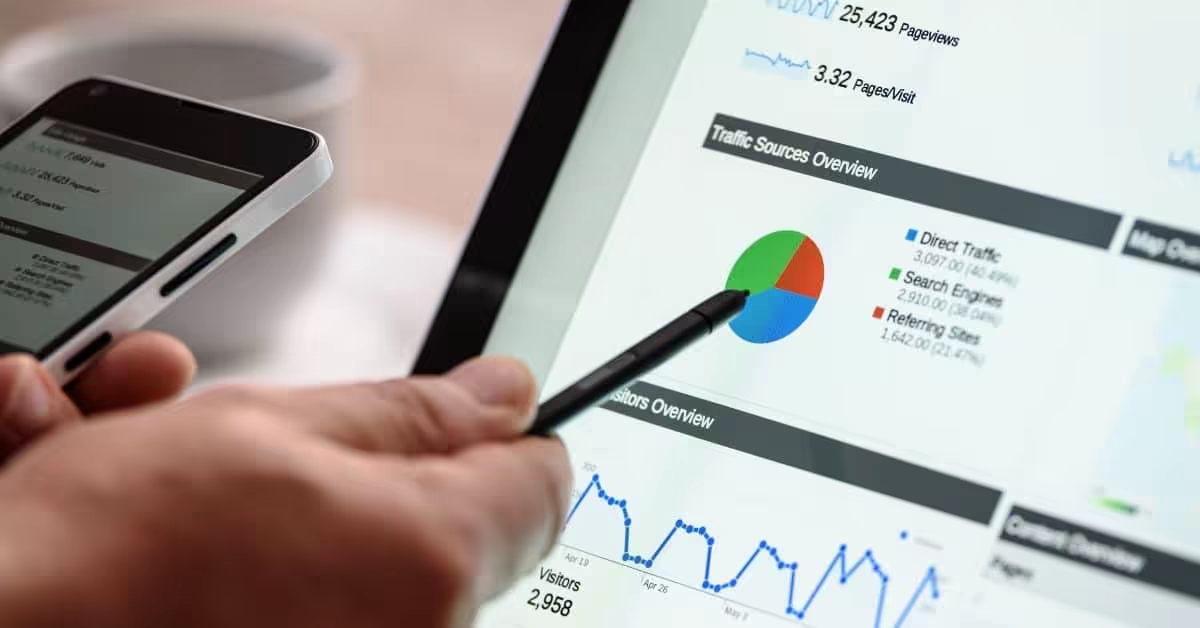Learn the step-by-step process of crafting compelling ads copywriting for Google Ads. This comprehensive guide provides practical tips and strategies to help you start performing ad copy that grabs attention, engages your target audience, and drives conversions.
What is Google Ads?
Google Ads , formerly known as Google AdWords, is an online advertising platform developed by Google. It allows big and small businesses and advertisers to create and display ads across various Google properties and partner websites to reach their target audience. It is a good way for digital marketing since on average, people perform 2.3 million Google searches per second.
What I Can Do with Google Ads?
With Google Ads, you can create text-based ads, display ads, video ads, and app ads. These ads can appear on Google’s search engine results pages (SERPs), partner websites within the Google Display Network, YouTube, linkedIn, and other Google-owned properties.
The platform operates on a pay-per-click (PPC ad) model, where advertisers bid on keywords relevant to their products or services. When users search for those keywords, the ads are displayed, and advertisers are charged only when users click on their ads.
What Google Ads Offer?
The key components of Google Ads include:
- Google Ad Campaigns: Advertisers create ad campaigns based on specific objectives, such as driving website traffic, generating leads, increasing brand awareness, or promoting product sales. Each campaign can contain multiple ad groups.
- Ad Groups: Ad groups within a campaign organize ads and keywords into specific themes. Advertisers can group related keywords together and create tailored ad copy to target specific audiences.
- Ad Formats: Google Ads offers a variety of ad formats, including text ads, responsive search ads, display ads, video ads, shopping ads, and app promotion ads. These formats allow advertisers to present their messages through different media types across Google’s advertising network.
- Keywords: Advertisers select relevant seo keywords or phrases that trigger their ads to appear when users search for those search terms. Keyword research and utilizing match types effectively helps ensure that ads are shown to the most relevant audience.
- Ad Performance Tracking and Optimization: Google Ads copy provides extensive tracking and reporting tools to measure the performance of ad campaigns. Advertisers can monitor metrics like impressions, clicks, click-through rates, conversion rates, and return on investment (ROI). This data allows advertisers to optimize their campaigns, refine their targeting, and improve the effectiveness of their ads.
How to Write Ad Copy for Google Ads
Here is a step by step guide to create effective google ads text :
Understand Your Audience and Goals
- Before writing ad copy, it’s essential to have a deep understanding of your target audience and campaign goals.
- Research your audience’s demographics, interests, and pain points.
- Clarify your campaign objectives, whether it’s driving website traffic, generating leads, or increasing sales. This knowledge will guide your messaging and tone.
- You can target active searchers and buyer with Google Search.
Grab Attention with an Impactful Headline
- Create a compelling headline that grabs the attention of potential customers.
- Use powerful words, ask questions, or make bold statements that resonate with their needs or desires.
- Include relevant keywords and try to evoke curiosity or urgency to entice users to click on your ad.
Highlight Key Benefits and Unique Selling Points
- Clearly communicate the key benefits and unique selling points of your product or service.
- Focus on how your offering solves problems, fulfills needs, or provides value to your audience.
- Use concise language, specific details, and persuasive language to convey the value proposition effectively.
- Specific numbers and dates are also a way to add specificity and credibility to your ads.
Utilize Relevant Ad Extensions
- Google Ads offers various ad extensions, such as site links, call extensions, and review extensions.
- Leverage these extensions to provide additional information, increase visibility, and enhance the effectiveness of your ad copy.
- Choose extensions that are relevant to your business and align with your goals.
Include a Strong Call-to-Action (CTA)
- Run ad copy with a clear and compelling call-to-action (CTA).
- Encourage users to take the desired action, such as “Buy Now,” “Sign Up Today,” or “Learn More,” or countdown.
- Make the CTA stand out visually and create a sense of urgency to prompt immediate response from the users.
Optimize for Relevant Keywords
- Identify and incorporate relevant keywords into your ad copy.
- Ensure that your ad copy aligns with the search queries of your target audience.
- Use dynamic keyword insertion when appropriate to make your ad more relevant and personalized to each user’s search query.
- Your landing page should also mirror the search intent and keywords that are in your ad copy.
Keep it Concise and Clear
- Google Ads often have character limits for headlines and descriptions, so it’s crucial to keep your ad copy concise and clear.
- Use short sentences, bullet points, and compelling language to improve readability.
- Avoid jargon or complicated language that may confuse or deter users.
Test and Refine Your Ad Copy
- Regularly test different versions of your ad copy to identify the most effective messaging (a/b testing).
- Experiment with variations in headlines, descriptions, CTAs, and ad extensions.
- Monitor the performance of your ads, including click-through rates (CTR) and conversion rates (CVR), and make data-driven optimizations to continually improve ppc campaign results.
- A high ad quality score improves your cost per conversion, enhancing the overall return on investment of your Google ad campaign.





 Dubai, UAE
Dubai, UAE